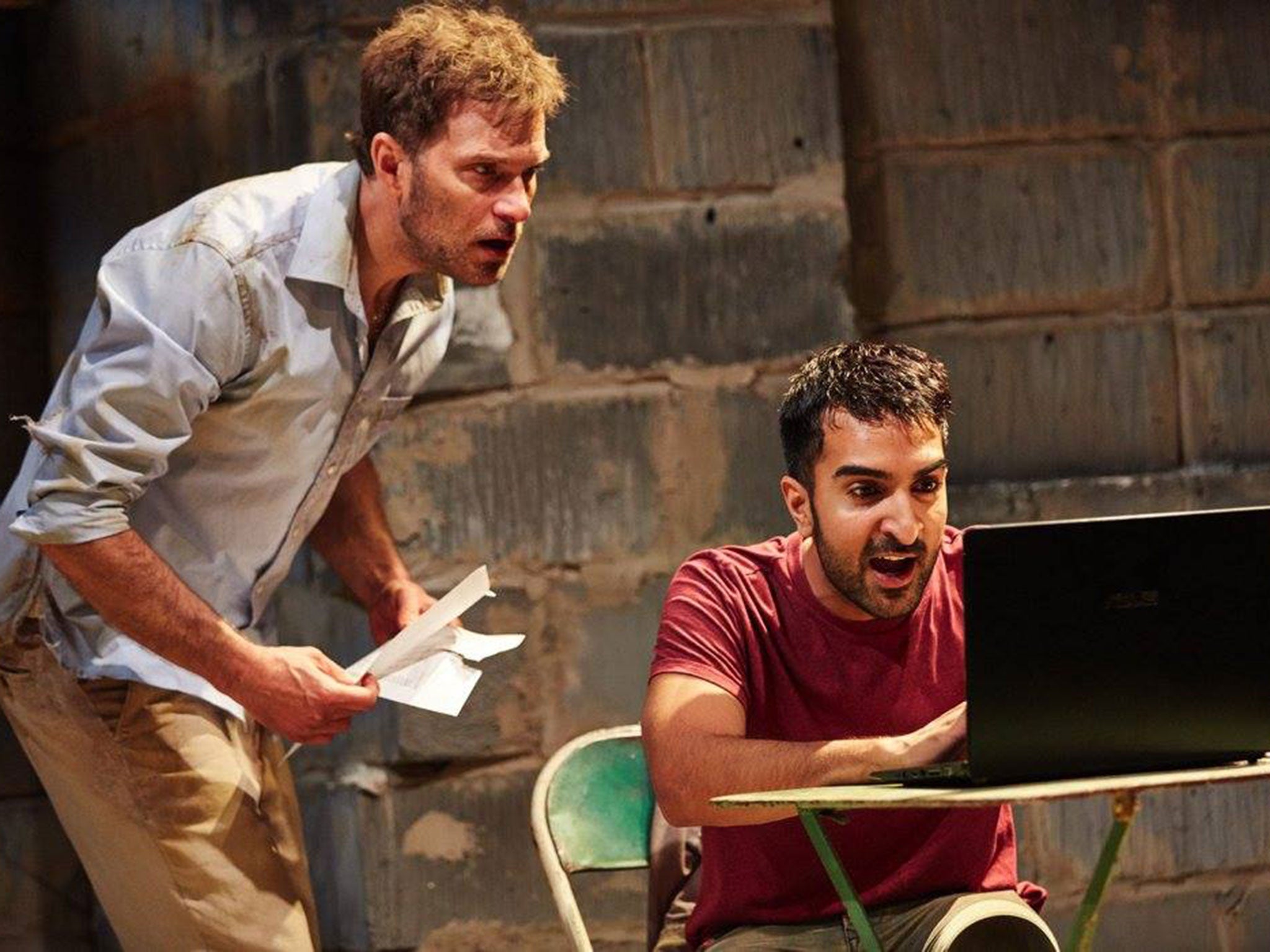The Invisible Hand theatre review: a play where banking meets terrorism
Ayad Akhtar's The Invisible Hand, at the Tricycle Theatre in London, tells the story of a kidnapped American banker

Your support helps us to tell the story
From reproductive rights to climate change to Big Tech, The Independent is on the ground when the story is developing. Whether it's investigating the financials of Elon Musk's pro-Trump PAC or producing our latest documentary, 'The A Word', which shines a light on the American women fighting for reproductive rights, we know how important it is to parse out the facts from the messaging.
At such a critical moment in US history, we need reporters on the ground. Your donation allows us to keep sending journalists to speak to both sides of the story.
The Independent is trusted by Americans across the entire political spectrum. And unlike many other quality news outlets, we choose not to lock Americans out of our reporting and analysis with paywalls. We believe quality journalism should be available to everyone, paid for by those who can afford it.
Your support makes all the difference.Ayad Akhtar won the Pulitzer Prize for his play Disgraced, which examines the penalties of denying one's cultural and religious roots through the story of a prosperous New York corporate lawyer who ends up paying a stiff price for having obscured his Muslim and Pakistani upbringing in the interests of his career. Matters of money, cultural identity and religion are again the nagging concern of The Invisible Hand, his latest play to reach London, though the themes are addressed here in a tense, thriller-like scenario.
Nick Bright, a high-flying American banker, has been kidnapped by militants in rural Pakistan who mistook him for his Citibank boss. They demand a $10m ransom for his release. But because their leader has been officially labelled a terrorist, the US won't negotiate. The intriguing twist is that Nick nonetheless manages to convince his captors that he's an asset worth keeping alive. He undertakes to raise the ransom money in a year by playing the international stock market, trading in futures and currencies, and treating them all to a masterclass in how to profit from free-market capitalism.
Punctuated by blinding lights and blaring noise between the scenes (all set in Nick's stark cell), Indhu Rubasingham's compelling production captures the dangerous volatility and grim humour of the situation and communicates well the fraught, absolutely addictive nature of stock market gambling. One of the many ironies in this thought-provoking piece is that it dramatises a reverse form of Stockholm Syndrome. Parth Thakerar's Bashir, a chippy young recruit from Hounslow who is much given to anti-Western tirades, becomes more adept than his master at the trading game. Nick (sensitively played by Daniel Lapaine) is far from being a greed-is-good Gordon Gekko figure. He's just never searchingly questioned the ethics of a system where currency is king. Or at least not until he sees the lengths to which Bashir is eventually prepared to carry its logic.
“We are prisoners of a corrupt country of our own making,” declares Imam Saleem (Tony Jayawardena), whose father died as a result of one of his own youthful investigative pieces into diverted funds. But now while using Nick's money for road and irrigation projects and to purchase vaccines, he also slips a tidy cut into his own pockets. Akhtar charts the disintegration of the cell with neatly plotted stealth and, though the play is instructive in more senses than one as it explains the jargon of “puts” and “shorts” and “basket trading”, you always feel that you are attending a fast-paced drama rather than an international finance seminar.
To 2 July; 020 7328 1000
Join our commenting forum
Join thought-provoking conversations, follow other Independent readers and see their replies
Comments